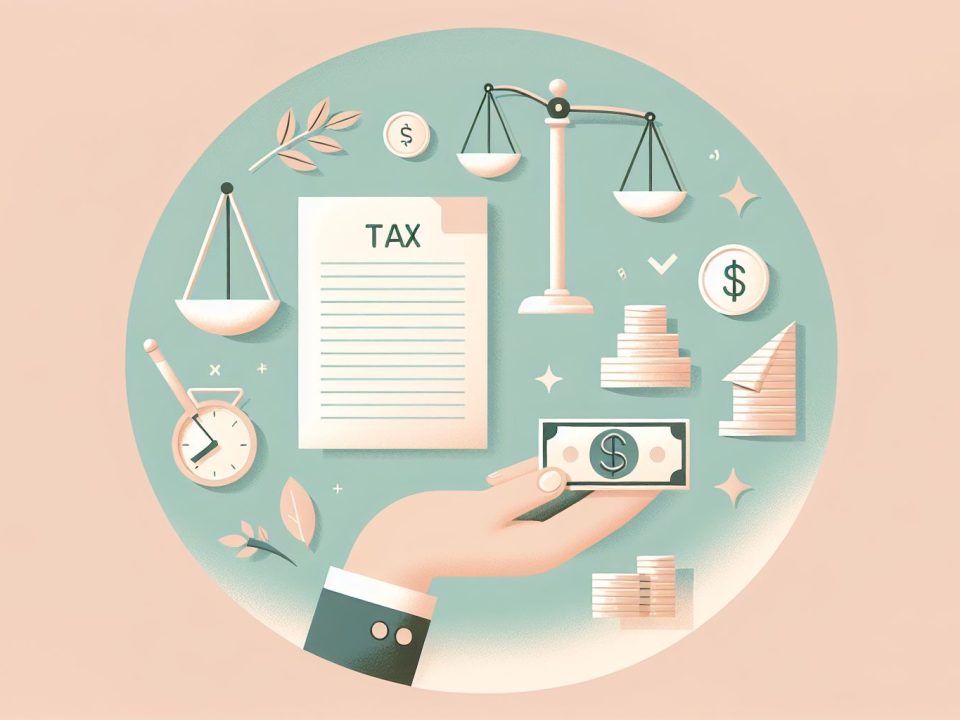
Rental Property Tax Deductions: What You Can and Can’t Claim in New Zealand
November 7, 2025
Shareholder Salary vs PAYE Salary: Which Payment Method is Right for Your Business?
November 14, 2025Inland Revenue Stepping Up Tax Debt Collection: What You Need to Know
If you’ve noticed money unexpectedly disappearing from your bank account, you’re not alone. Inland Revenue (IR) has significantly ramped up its tax debt collection activities, and thousands of New Zealanders are feeling the impact. Understanding your rights and obligations is crucial in navigating this challenging situation.
The Scale of IR’s Tax Debt Collection Drive
The numbers tell a striking story. Since mid-June, Inland Revenue has issued 16,500 notices about planned bank deductions – a staggering 25 percent increase compared to the entire previous year. Between mid-June and September 30 alone, IR completed 8,181 deductions, recovering $17 million from taxpayers’ accounts. An additional 6,026 deductions were in progress during this period, collecting another $5.5 million.
This aggressive approach marks a significant shift from the “softly, softly” approach that characterized the Covid years, when many taxpayers received considerable leeway with their tax obligations.
Why the Sudden Increase?
The reason for this intensified focus is clear: tax debt in New Zealand has reached alarming levels. As of March, total tax debt stood at $9.3 billion – a substantial burden on the nation’s revenue system.
John Cuthbertson, tax leader at Chartered Accountants Australia New Zealand, explains that the lenient approach during the pandemic years contributed to this ballooning debt. Now, with specific funding allocated in Budget 2024 and 2025 for more aggressive audit and collection activity, IRD is determined to prevent the debt from growing further.
Who’s Being Targeted?
According to IR spokesperson Rowan McArthur, the department is focusing on two main groups:
- Customers who have repeatedly not engaged with IR – Those who have ignored communications and failed to respond to previous notices
- Those with apparent funds available – Taxpayers where IRD’s information indicates there may be money in bank accounts that could be applied toward existing tax debt
Some of the debt being pursued is quite old, with IRD working to collect it quickly before it becomes legally non-collectible.
Tax Debt Collection Process: What to Expect
The process typically unfolds in stages, though some accountants have reported clients receiving as little as one week’s notice before deductions occur.
According to Inland Revenue’s own guidance, taxpayers would typically have received:
- Initial advice about the overdue amount
- A warning letter before any deduction takes place
- Multiple opportunities to engage with IR about payment arrangements
However, Deloitte tax partner Robyn Walker notes that since IR’s recent system upgrade, the department has access to more information from a wider variety of sources, enabling more proactive collection efforts. This same upgrade has also made tax debt more prominently displayed when taxpayers log into their MyIR accounts – a change some have found confronting.
Beyond Bank Deductions: Other Collection Powers
Bank deductions aren’t the only tool in Inland Revenue’s arsenal. The department also has the power to arrange deductions directly from wages for employed taxpayers, ensuring regular payment toward outstanding debts.
These powers are particularly relevant for businesses that may have used tax money for operational expenses. Cuthbertson points out that some employers and companies have essentially “used Inland Revenue as a bank” by not paying core taxes like GST and PAYE – money that is legally held on trust for the Crown.
“That means they’ve been living beyond their means, really,” he explains.
The Business Impact
For struggling businesses, the sudden removal of funds can create significant cashflow challenges. While IR is also working to establish instalment payment plans, the short notice period reported by some accountants has left businesses scrambling to manage their finances.
The situation highlights a critical point: tax obligations should never be treated as optional or deferred indefinitely. What might seem like a temporary solution – using tax money to cover other business expenses – can quickly become an overwhelming problem.
The Importance of Early Engagement
Both IR and tax professionals emphasize one crucial message: communication is key during tax debt collection. As McArthur states, “As with all tax debt, we welcome customers contacting us so we can work with them to resolve their debt situation.”
Cuthbertson reinforces this point: “It’s in people’s best interest to get on top of their debt as early as they can and communicate.”
Early engagement can provide several benefits:
- Avoiding forced deductions – By contacting IR proactively, you may arrange a payment plan that suits your circumstances rather than facing unexpected bank deductions
- Managing cashflow – Structured payment plans allow better financial planning than sudden deductions
- Preventing additional action – Early resolution can prevent wage deductions or further collection activity
- Reducing penalties and interest – The sooner debt is addressed, the less additional costs accumulate
The Broader Context
This collection drive occurs against a backdrop of significant changes at Inland Revenue. The department’s recent system upgrade has not only enhanced its data-gathering capabilities but also improved its ability to identify taxpayers with potential resources to pay their debts.
The upgrade to the MyIR system has made tax obligations more transparent – and more confronting – for users. While this transparency serves IR’s collection objectives, it has also generated feedback that the approach feels aggressive to some taxpayers.
Frequently Asked Questions – IRD Tax Debt Collection
Q: How much notice will I receive before IR deducts money from my bank account?
A: While IR’s guidelines indicate you should receive multiple communications including advice about the overdue amount and a warning letter, some taxpayers have reported receiving as little as one week’s notice. The exact timeline can vary based on individual circumstances.
Q: Can I negotiate a payment plan with Inland Revenue?
A: Yes. IR is actively working to establish instalment payment plans with taxpayers. Contacting them proactively greatly increases your chances of arranging terms that suit your financial situation.
Q: What if I can’t afford to pay my tax debt right now?
A: Contact IR immediately to discuss your situation. They may be able to arrange a payment plan, pause collection activity temporarily, or discuss other options based on your circumstances. Ignoring the problem will only lead to forced collection action.
Q: Can IR take money from my wages?
A: Yes. If you’re employed, IR has the power to arrange deductions directly from your wages to recover tax debt. This is separate from and in addition to their ability to deduct from bank accounts.
Q: What happens if the debt is from my business?
A: Business tax debt, particularly GST and PAYE, is taken very seriously as these amounts are considered held on trust for the Crown. IR may pursue both the business and potentially directors personally. Early engagement is especially critical for business debt.
Q: How will I know if IR is planning to take money from my account?
A: You should receive written notice before any deduction occurs. Additionally, logging into your MyIR account will prominently display any outstanding tax debt. If you see debt displayed there, don’t wait for further action – contact IR immediately.
Q: Will IR work with me if I’m experiencing financial hardship?
A: IR has processes in place to consider financial hardship situations during tax debt collection. However, you must communicate your circumstances to them. They cannot take your situation into account if they don’t know about it.
Q: What if I disagree with the amount IR says I owe?
A: Contact IR immediately to dispute the amount. If there’s a genuine disagreement about the debt, this needs to be resolved before collection action proceeds. Professional tax advice may be valuable in these situations.
Take Action Now
If you’re facing tax debt or have received notice from Inland Revenue about collection action, time is of the essence. The longer you wait, the fewer options you may have available.
Don’t navigate this alone. Our experienced tax professionals understand the complexities of dealing with Inland Revenue and can help you:
- Understand exactly what you owe and why
- Negotiate payment arrangements that work for your situation
- Communicate effectively with IR on your behalf
- Explore all available options for resolving your tax debt
- Prevent or minimize forced collection actions
Whether you’re an individual taxpayer or a business owner, we’re here to help you find a path forward. Our team has extensive experience working with IR and can provide the guidance and support you need during this stressful time.
Contact us today for a confidential consultation. Don’t wait until money disappears from your account – let us help you take control of your tax situation now. Early action can make all the difference in achieving the best possible outcome.
Call us or visit our website to schedule your appointment. Together, we’ll work toward resolving your tax debt and restoring your peace of mind.




